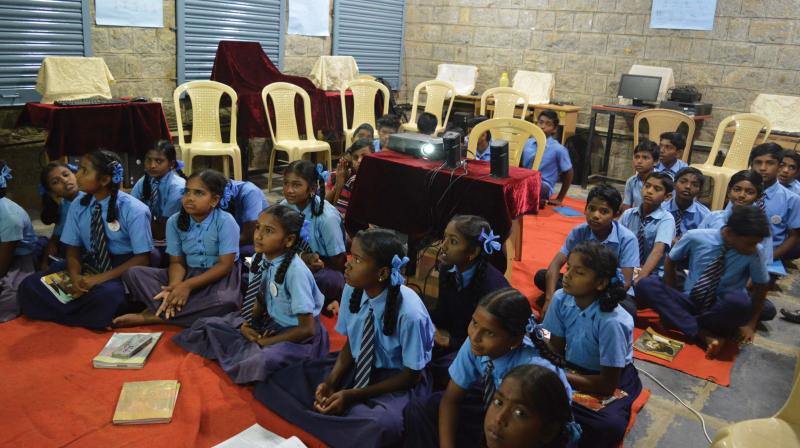AIF: Helping govt school students take big tech leap

To bridge the education and technology divide between government and private schools, the American India Foundation (AIF) has been reaching out to 28,46,177 government school students through 1,31,980 teachers in 12,473 schools across 15 states (133 districts) since 2002. In Karnataka, however, it started its intervention in 2007 with the Digital Equaliser Programme covering 74 schools spread across five districts of Bengaluru Urban and Rural, Raichur, Tumakuru and Ramanagara. “Tech intervention for better learning outcomes has made learning interesting for students. We believe this greatly contributes towards building the nation, as it gives everyone access to affordable and quality education, helps students reach their potential and increases their job opportunities,” said Mr Jockim Jacob, state programme manager, AIF. AIF also trains teachers, mainly in English, science, mathematics and social science. Full-time and part-time training coordinators work with government school teachers on a daily basis and ensure that the right content in the digital format is taught in a day’s class.
“To incorporate the curriculum recommended by the state government from classes 6 to 8, the content is digitised and translated into various forms, like interactive videos, Powerpoint presentations and live activities. Translation and content creation teams work with subject and tech experts to ensure that the content is error-free and interesting,” he said. Student engagement is observed, project-based learning is encouraged and reflection sessions are mandatorily held after each class, said Team AIF, explaining how their flagship programme DEWoT (Digital Equaliser Way of Teaching) works. Students are exposed to the flipped classroom methodology where students pick what they want to learn. It focuses on self-paced learning and helps students learn new concepts through video lectures and handouts. What earlier used to be homework (assigned problems) is now done in the classroom with teachers offering more personalised guidance.
The AIF has reached out to over 8,100 students and 262 teachers in different parts of the state and the AIF team shares a number of success stories. They said that many children have evolved into best performing students of their regions and have signed up for higher education at prestigious institutions. On a larger scale, the Foundation has initiated DEWot in 12,473 schools across 15 states (133 districts), reaching to 28,46,177 students through 1,31,980 teachers. “Comparative studies of learning outcomes and results between AIF-intervened schools and others are done on a yearly basis to determine the strengths and weaknesses of the system,” Mr Jacob said. Students of classes 6 to 8 are given special training for National Financial Literacy Assessment Test (NFLAT) to create awareness on how to spend money, utilise financial resources and save practically. “We help them open bank accounts and take them out on bank exposure visits,” the team said. AIF supports Sarva Shiksha Abhiyan (SSA) to provide health and hygiene classes in government schools to promote hand-washing practices, to reduce use of dry waste and to encourage use of non-plastic items.
The English Helper Programme works on a specially-designed application which makes studying English effective for government schoolchildren, who study in Kannada medium. AIF’s School Transformation Programme involves painting of schools, employee engagement, providing furniture like desks, chairs and tables for classrooms, providing projectors for smart classrooms and schoolbags to all children in selected government schools. The Foundation is now working on expanding their reach to Dharwad and Gadag, where 921 schools have been identified, where their programme is set to launch in the near future. Based at the Rajajinagar DIET office (Bengaluru Rural), the state AIF team provides training to Cluster Resource Persons (CRP) from the education department to ensure tech learning is decentralised to put it into maximum practice. A school magazine that enables sharing of pedagogic techniques among teachers of public schools in the state is also in the pipeline. “The power of technology-based education can be rightly used to transform the lives of children. It will catalyse social and economic change in the country,” Mr Jacob said.

